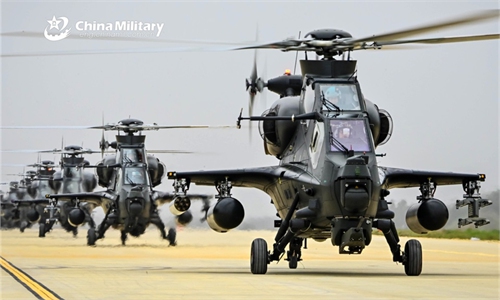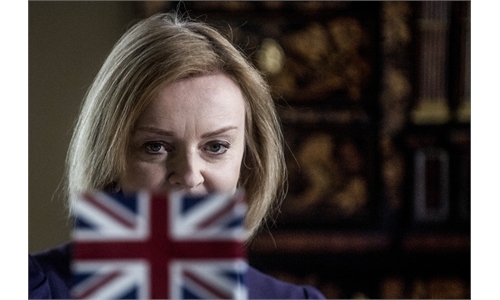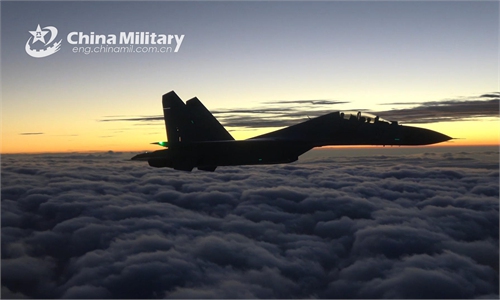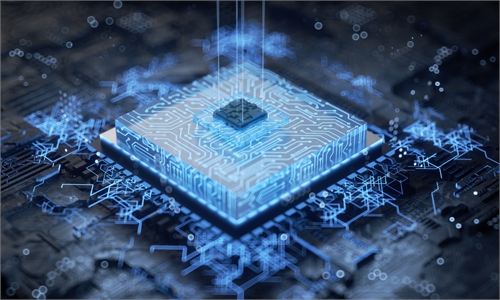US senator’s trip to Taiwan ‘very dangerous’; PLA sent warplanes
Washington provides ‘lip service’ to Taiwan’s desire for joining IPEF
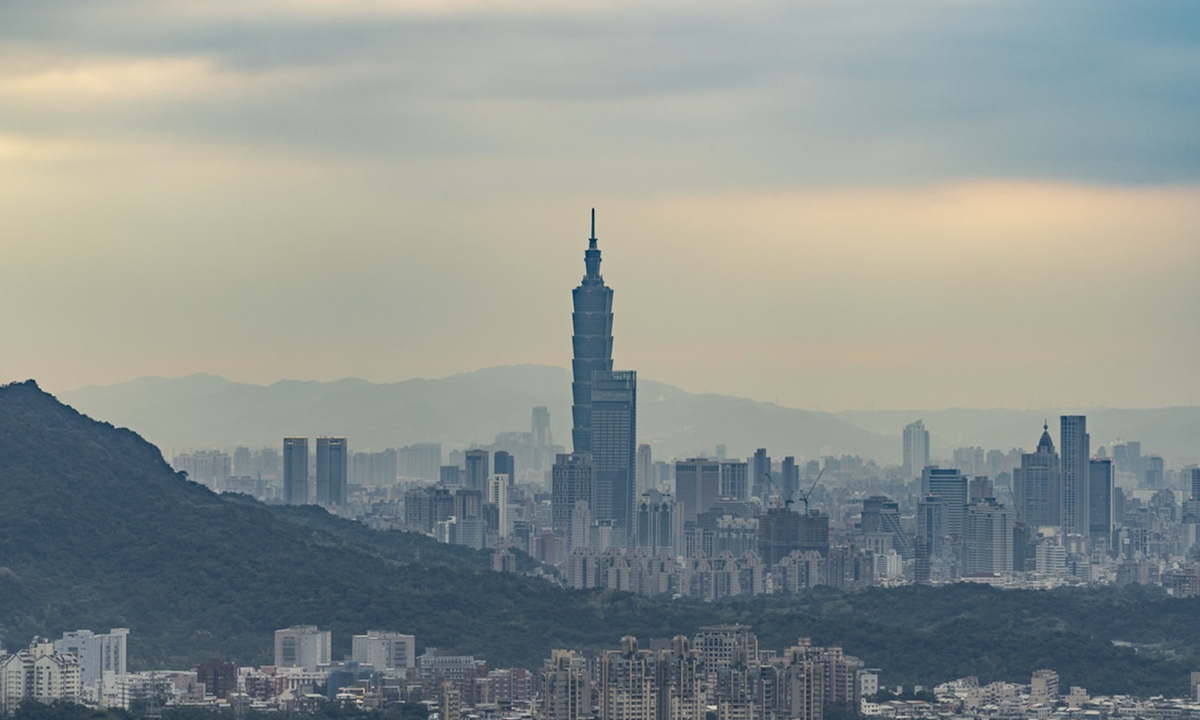
Taiwan Photo: Unsplash
China launched strong opposition on Tuesday with both diplomatic and military means in protest against US senator Tammy Duckworth's surprise visit to the island of Taiwan and talks with secessionists.
Experts from the Chinese mainland said that while Duckworth's visit was intended to placate Taiwan secessionists in the face of the recent "diplomatic setbacks," the US may use the trip to keep the sensitivity and intensity of the Taiwan question to create regional insecurity while better advancing its own strategy, which would further damage bilateral ties.
"Relevant US congresswoman's visit to Taiwan seriously violates the one-China principle and the provisions of the three China-US joint communiques. China deplores and rejects this and has lodged solemn representations with the US side," Chinese Foreign Ministry spokesperson Zhao Lijian said at a routine press briefing Tuesday.
We urge relevant US politicians to earnestly abide by the one-China principle, and immediately stop official exchanges with Taiwan in any form and refrain from sending any wrong signals to the 'Taiwan independence' separatist forces, Zhao said, "China will continue to take forceful measures to resolutely safeguard China's sovereignty and territorial integrity."
Zhu Fenglian, spokesperson of the Taiwan Affairs Office of the State Council, told a Tuesday press conference that "it is very dangerous" for the US to connive in the separatist activities conducted by Taiwan secessionists.
One day earlier, the Chinese People's Liberation Army (PLA) dispatched 30 warplanes to the vicinity of the Taiwan island on Monday, the same day Duckworth landed on the island for a surprise visit, and also at the same time as the US Navy was holding dual carrier drills not far from the region. Analysts said it is a serious warning against collusion between Taiwan secessionists and external forces like the US.
Duckworth and her delegation landed in Taiwan on Monday night as part of a surprise visit that was slated to last until June 1. Her visit is the first in more than one month since a congressional delegation visited Taiwan in April.
Unlike her previous Taiwan visit in June 2021 when she flew in on a C-17 US military transport plane, Duckworth this time arrived on a commercial jet at Taiwan Taoyuan International Airport, which experts viewed as a US trick to downplay the trip as "unofficial" and "informal."
However, Duckworth's talks with Taiwan island's regional leader Tsai Ing-wen and head of external affairs authority Joseph Wu exposed their clumsy disguise.
Being described as "highly friendly toward Taiwan" and publishing a Chinese language version of her memoir in Taiwan this year, Duckworth stressed strong US support for Taiwan, especially in the US congress. She told Tsai that the US hopes to upgrade its military and economic ties with the island, and the US will make sure that Taiwan does not fight alone, some Taiwan-based media reported.
Tsai said the island authorities look forward to deeper and closer regional security cooperation with the US, and expressed willingness to participate in the US-led "Indo-Pacific Economic Framework (IPEF)."
Xin Qiang, deputy director of the Center for American Studies at Fudan University, told the Global Times on Tuesday that Duckworth's Taiwan visit aims to pacify the island's secessionists which received oral support but in fact encountered a diplomatic fiasco.
The expert is referring to recent US moves that targeted the Chinese mainland by wielding the "Taiwan card." During his Asia trip that was aimed at containing China, US President Joe Biden affirmed that the US would militarily intervene in a potential conflict over Taiwan, but a short while later, US Secretary of State Antony Blinken said Washington's policy on Taiwan had remained unchanged and that the US will continue to pursue its "one China policy."
As for Taiwan's anticipation to become a WHA observer and to join the IPEF, the US also guaranteed nothing substantial but only lip services.
If having not secretly arranged by the Biden administration, the trip at least conveyed "rock-solid" supportive echoes from the US congress, where Taiwan has spent much time and expense, Xin said.
Just before Duckworth's Taiwan visit, she proposed the Strengthen Taiwan's Security Act of 2022 to foster the strengthening of coordination between the island and the US on security issues. Duckworth and 51 other senators sent a letter to Biden in mid-May calling for the island to be included in the IPEF.
'Cannot continue to deteriorate'
Biden cannot use "not knowing in advance" to get out of his acquiescence in Duckworth visit which further undermined China-US relations, Diao Daming, an associate professor at the Renmin University of China in Beijing, told the Global Times on Tuesday. He said Duckworth's "low-profile visit" cannot hide the essence of its "official intent."
Analysts said it is reasonable to assume that Duckworth has had much interactions with Democratic administrations from Barack Obama's tenure to Biden's. In 2009, Obama nominated Duckworth to be the assistant secretary of public and intergovernmental affairs for the US Department of Veterans Affairs. And she was even on the list of Biden's vice-presidential picks in 2020 when he was preparing his own election bid.
The White House wants to see the Taiwan question stay in the spotlight, and by creating unease, tension and rivalry across the Taiwan Straits, the US can advance its own strategy in the region, Diao said.
As Duckworth currently chairs the Subcommittee on Airland under the Senate Committee on Armed Services and is also a member of the Committee on Commerce, Science and Transportation, Diao said it cannot be ruled out that Duckworth may serve as a channel between the US and the Taiwan authorities in broad cooperation in military, semiconductor and supply chains.
When it comes to the Taiwan question, the US is no longer taking into account what the Chinese mainland is doing. Instead, they focus on building and maintaining their rhetoric of "China coercion," Diao said. He noted that by sending lawmakers to Taiwan, the US can continue to stoke regional tensions and use it to confirm its own concocted "China threat."
About the same time Tsai met with Duckworth, Chinese State Councilor and Foreign Minister Wang Yi delivered a video speech at the Symposium on "Dr. Kissinger and China-US Relations" on the invitation of the Chinese People's Institute of Foreign Affairs. In his speech, Wang sounded the alarm and set the tone for the China-US relations over the Taiwan question.
Wang pointed out that the historical narrative of China-US relations has been artificially distorted, and the development direction is in danger of being further led astray. "If the US continues to turn back the clock of history on the Taiwan question, it will fundamentally undermine peace across the Taiwan Straits and [it] will eventually hurt itself."
"China-US relations cannot continue to deteriorate. We must make the right choice. We need to correct our strategic perception and abandon the Cold War mentality," Wang stressed.
Wang said the current atmosphere of China-US relations is very "abnormal," and the high anxiety of the US side is completely unnecessary. China's overriding task is to concentrate on developing itself and meet its people's aspirations for a better life. If the US keeps defining its relations with China in terms of major power competition and sets its policy goal as "I-win-you-lose," it will only push China and the US into confrontation and conflict and the world into division and turmoil.
For those who still hold out hope for the future of China-US relations, it cannot be ruled out that Duckworth's visit may serve to convey a "friendly but stern warning" from the Biden administration to Taiwan secessionists who were urged not to cross the security barriers drawn by Washington, as Taiwan secessionists are obstacle not only for the Chinese mainland, but also for White House that seeks for advantage over China from the subtle balance.
Following Biden's claim to "defend Taiwan," the "legislative body" on the island of Taiwan has requested the deployment of various precision missiles in Kinmen, Matsu and other outlying islands of Taiwan, which was rejected by the island's defense authority. In response, in May, the mainland conducted its second large-scale military exercise around the island.
Kissinger recalled at Tuesday's seminar that 50 years ago, it was based on a tacit understanding that the US would recognize the one-China principle and that China would understand and respect the concerns that America had about and how that principle would be implemented on the Chinese side.
Kissinger said the military capacity of each side has grown to a point which would make a threatening impact on the other side. He hopes that the two sides can talk to each other without threat and will develop concepts in which they can both contribute to the evolution of the world and to its peace and progress.

